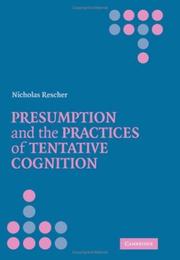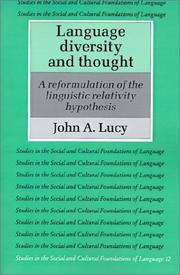| Listing 1 - 5 of 5 |
Sort by
|

ISBN: 9780521349635 9780521864749 0521864747 Year: 2006 Publisher: Cambridge: Cambridge university press,
Abstract | Keywords | Export | Availability | Bookmark
 Loading...
Loading...Choose an application
- Reference Manager
- EndNote
- RefWorks (Direct export to RefWorks)
Multi
ISBN: 9781400847914 9780691121581 Year: 2013 Publisher: Princeton, N.J. Princeton University Press
Abstract | Keywords | Export | Availability | Bookmark
 Loading...
Loading...Choose an application
- Reference Manager
- EndNote
- RefWorks (Direct export to RefWorks)
Pure sciences. Natural sciences (general) --- Gaia hypothesis. --- Philosophy of nature. --- Geobiology.
Multi
ISBN: 9783031237096 9783031237089 9783031237102 9783031237119 Year: 2023 Publisher: Cham, Switzerland : Springer Nature Switzerland AG,
Abstract | Keywords | Export | Availability | Bookmark
 Loading...
Loading...Choose an application
- Reference Manager
- EndNote
- RefWorks (Direct export to RefWorks)
This books presents a documentation and resulting perspectives regarding James Lovelock's multidisciplinary evolution theory. It looks at past and current climate changes and their consequences, including detailed accounts of the global warming. The connection between climate trajectories and extreme weather events, including tropical and arctic fronts, cyclones, fire storms, tropical storms, acidification, tsunami, floods, sea level rise, are referred to in connection with recent developments. The book updates earlier accounts regarding extreme weather events and mass extinctions.
Meteorology. Climatology --- Geology. Earth sciences --- klimatologie --- geografie --- geologie --- aarde (astronomie) --- Climatic changes. --- Evolutionary paleoecology. --- Gaia hypothesis. --- Lovelock, James,
Multi
ISBN: 9781107619753 9781107043961 1107043964 1107619750 9781107358300 1316121410 1316120325 1107358302 Year: 2015 Publisher: Cambridge Cambridge University Press
Abstract | Keywords | Export | Availability | Bookmark
 Loading...
Loading...Choose an application
- Reference Manager
- EndNote
- RefWorks (Direct export to RefWorks)
"Language is central to our lives, the cultural tool that arguably sets us apart from other species. Some scientists have argued that language is innate, a type of unique human 'instinct' pre-programmed in us from birth. In this book, Vyvyan Evans argues that this received wisdom is, in fact, a myth. Debunking the notion of a language 'instinct', Evans demonstrates that language is related to other animal forms of communication; that languages exhibit staggering diversity; that we learn our mother tongue drawing on general properties and abilities of the human mind, rather than an inborn 'universal' grammar; and that, ultimately, language and the mind reflect and draw upon the way we interact with others in the world. Compellingly written and drawing on cutting-edge research, The Language Myth sets out a forceful alternative to the received wisdom, showing how language and the mind really work"--
Linguistic universals --- Cognitive grammar --- Innateness hypothesis (Linguistics) --- Language and languages --- Psycholinguistics --- Philosophy --- Linguistic universals. --- Cognitive grammar. --- Innateness hypothesis (linguistics). --- Psycholinguistics. --- Language arts & disciplines --- Philosophy. --- Linguistics --- General. --- Philosophy of language --- Taalverwerving --- Communicatie --- Intelligentie --- Taal --- Taalwetenschap --- Linguïstische intelligentie --- Sociolinguïstiek --- #KVHB:Psycholinguistiek --- #KVHB:Linguistiek --- Linguïstiek --- Meervoudige intelligentie --- Therapie --- Kleuter --- Geschiedenis --- Spraaktechnologie --- Language and languages - Philosophy --- Language, Psychology of --- Psychology of language --- Speech --- Psychology --- Thought and thinking --- Language bioprogram hypothesis (Linguistics) --- Cognitive linguistics --- Grammar, Comparative and general --- Universals (Linguistics) --- Typology (Linguistics) --- Psychological aspects --- Universals

ISBN: 0521387973 0521384184 9780521387972 9780511620843 9780521384186 0511620845 Year: 1992 Volume: 12 Publisher: Cambridge Cambridge University Press
Abstract | Keywords | Export | Availability | Bookmark
 Loading...
Loading...Choose an application
- Reference Manager
- EndNote
- RefWorks (Direct export to RefWorks)
Language Diversity and Thought examines the Sapir-Whorf linguistic relativity hypothesis: the proposal that the grammar of the particular language we speak affects the way we think about reality. Adopting an historical approach, the book reviews the various lines of empirical inquiry which arose in America in response to the ideas of anthropologists Edward Sapir and Benjamin L. Whorf. John Lucy asks why there has been so little fruitful empirical research on this problem and what lessons can be learned from past work. He then proposes a new, more adequate approach to future empirical research. A companion volume, Grammatical Categories and Cognition, illustrates the proposed approach with an original case study. The study compares the grammar of American English with that of Yucatec Maya, an indigenous language spoken in southeastern Mexico, and then identifies distinctive patterns of thinking related to the differences between the two languages.
800:159 --- #SBIB:309H518 --- 800:159 Psycholinguistiek. Neurolinguistiek --- Psycholinguistiek. Neurolinguistiek --- Verbale communicatie: sociologie, antropologie, sociolinguistiek --- Language and languages --- Sapir-Whorf hypothesis --- Thought and thinking --- Mind --- Thinking --- Thoughts --- Educational psychology --- Philosophy --- Psychology --- Intellect --- Logic --- Perception --- Psycholinguistics --- Self --- Relativity (Linguistics) --- Whorf-Sapir hypothesis --- Anthropological linguistics --- Sociolinguistics --- Characterology of speech --- Language diversity --- Language subsystems --- Language variation --- Linguistic diversity --- Variation in language --- Variation --- Sapir-Whorf hypothesis. --- Thought and thinking. --- Arts and Humanities --- Language & Linguistics --- Hipòtesi de Sapir-Whorf --- Llenguatge i llengües --- Pensament --- Psicologia pedagògica --- Associació d'idees --- Atenció --- Criteri --- Definició (Lògica) --- Dogmatisme --- Ideologia --- Pensament crític --- Raonament (Psicologia) --- Treball intel·lectual --- Cognició --- Lògica --- Representació (Filosofia) --- Llengües --- Llengües i llenguatge --- Antropologia --- Filologia --- Comunicació escrita --- Conversa --- Elocució --- Escriptura --- Espai i temps en el llenguatge --- Lingüística --- Llengua d'ensenyament --- Llengua materna --- Llenguatge de les flors --- Llenguatge de signes --- Llenguatge infantil --- Llengües indígenes d'Amèrica --- Llengües modernes --- Multilingüisme --- Oratòria --- Sociolingüística --- Traducció --- Veu --- Comunicació --- Didàctica de la llengua --- Gramàtica --- Llenguatge a Internet --- Origen del llenguatge --- Relativitat (Lingüística) --- Etnolingüística --- Psicolingüística --- Variation. --- Language and languages - Variation --- Pensament màgic
| Listing 1 - 5 of 5 |
Sort by
|

 Search
Search Feedback
Feedback About UniCat
About UniCat  Help
Help News
News